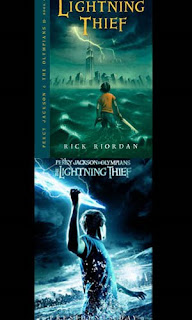
There are some things in life that are too-good-to-be-true. Have you ever been on the Internet when suddenly a pop-up announces that you have just won an incredible prize or dream vacation worth thousands of dollars? "Just Click Here!," reads the pop-up. I bet for a split second some of you have been tempted to click your mouse to get that pot of gold. Schemes like this one are often too-good-to-be-true. Some get-rich-quick-schemes can also be more complicated than they first seem. Some can even lead to jail.
Have you heard of a man by the name of Bernie Madoff? At one time he was one of the most prominent and powerful people on Wall Street. Last June, Bernie Madoff was sentenced to 150 years in prison because he was found guilty of a scheme that promised his clients their pot of gold. Movie stars, charitable organizations, and regular hard working folks all trusted Bernie Madoff. When times were tough, when other investments on Wall Street didn't pay-off big, Bernie's clients still made a ton of money, or at least that's what he told them. What really happened behind the scenes could have been called the world's largest Ponzi Scheme. As Madoff got richer he hid the fact his clients got poorer, and to keep this a secret, as they say, he robbed Peter to pay Paul.
To his clients, an investment with Bernie was a sure thing. They faithfully sent Bernie their money, and he automatically sent investment statements back to them by mail. His clients were pleased with each statement they received. Why would any of them stop after reading how much money they made with Bernie? Why would they question a sure thing? Who would want to spoil such good news?
You know what he didn't tell them. He had spent their money. Oh, there were some clients that wanted their money back. That was okay. Bernie either had enough on hand or he could find new investors and use their money to pay back what he owed to others. This kind of operation is called a Ponzi Scheme. Bernie even turned away new investors at times, just to make his operation look legit. Madoff probably could have kept the Ponzi Scheme going on indefinitely except the economy tanked. When too many of his clients wanted out, Bernie Madoff was exposed. He couldn't pay back all the money he had spent or lost-approximately 65 billion dollars worth. Had he known he'd be caught, Madoff probably would have skipped the country.
In Caroline Cooney's new book, They Never Came Back, a husband and wife are guilty of mishandling their clients' money, but they don't meet the same fate as Bernie Madoff. The couple decided to flee the country just before the FBI, IRS, SEC, and NASD could get their hands on them. They arranged to leave the country separately to make their trail more difficult to follow, but in their haste, the couple made a slight miscalculation in their masterful escape plan. They had left their ten-year-old daughter behind.
Murielle led a life on the fast track for a ten-year-old. Piano, dance, horseback riding, gymnastics, French, swimming and more were on her weekly schedule. Murielle was almost as busy as her parents. "Her parents skipped meals, ate in front of their computers or went to restaurants. Sometimes they weren't home until long after Murielle was fast asleep. Sometimes they left in the morning before Murielle was awake." (p. 84) Murielle's parents led their lives on the financial fast track, but their daughter's needs were taken care of, even if she had to eat supper with the housekeeper instead of with her mom and dad.
But, as news reports flashed on CNN about her parents, the fugitives, all Murielle could think about was when, not if, her parents would come back to get her. Maybe if Murielle could have monitored her parents the way they had meticulously managed the flow of stolen money into their secret bank accounts, perhaps she might also be seated in first class on a flight to Europe at her mom or dad's side.
Murielle should have been suspicious when her mom said they would soon go on a family vacation to England. They hardly ever went on family vacations, and if they did, her parents would spend all their time on business. This family trip would be different, her mom promised. Murielle couldn't wait. I guess her parents couldn't wait either. Some things in life are too-good-to-be-true.
Well, the FBI, IRS, SEC, and NASD didn't forget about Murielle. As the agents questioned her she grew more tense. She knew the agents were clever. She also knew what they didn't. She couldn't tell them where her parents were because she didn't know, but inside her backpack was a cell phone and a clip of money. Her mother's orders were to keep them hidden until the time was right. Murielle didn't tell the agents anything-instead she threw-up. Eventually the cell phone, the money, and even Murielle disappear. Murielle never made the call; the right time never came.
Five years later, in a place called Greenwich Village, a boy named Tommy takes a picture with a cell phone. Tommy forwards the picture to his parents. All he can think is that a miracle has occurred. A girl with an amazing resemblance to his cousin, the one who disappeared from his life five years earlier, is sitting right in front of him in the school cafeteria. When Tommy's parents see the girl in person, they begin to cry. They obviously see the amazing resemblance, too. But remember, some things in life may be too-good-to-be-true.
If you like mysteries, and you can tell this is a great mystery by the number of questions that need to be answered, then I would like to recommend Caroline Cooney's new book, They Never Came Back.


